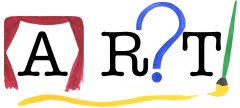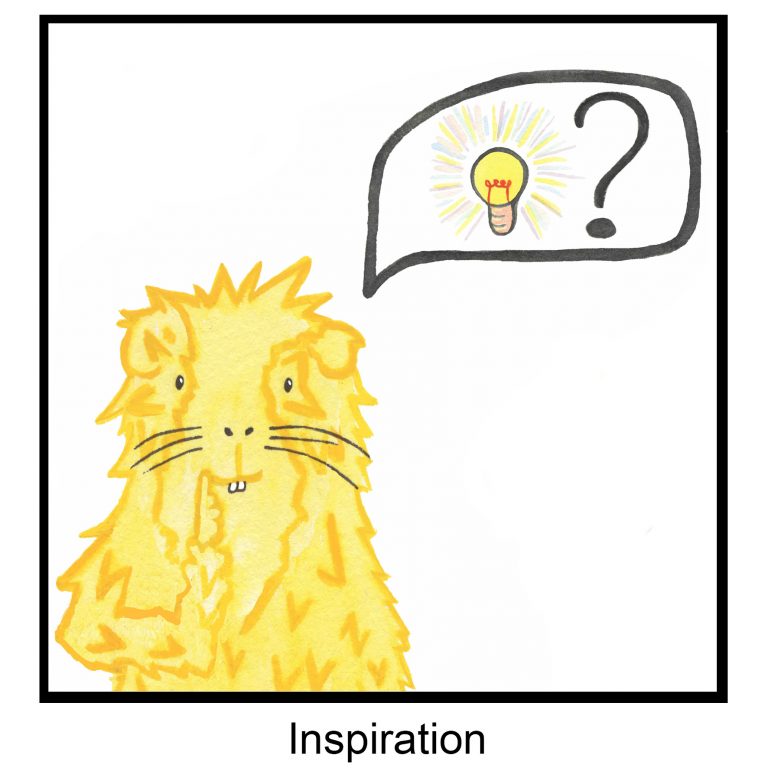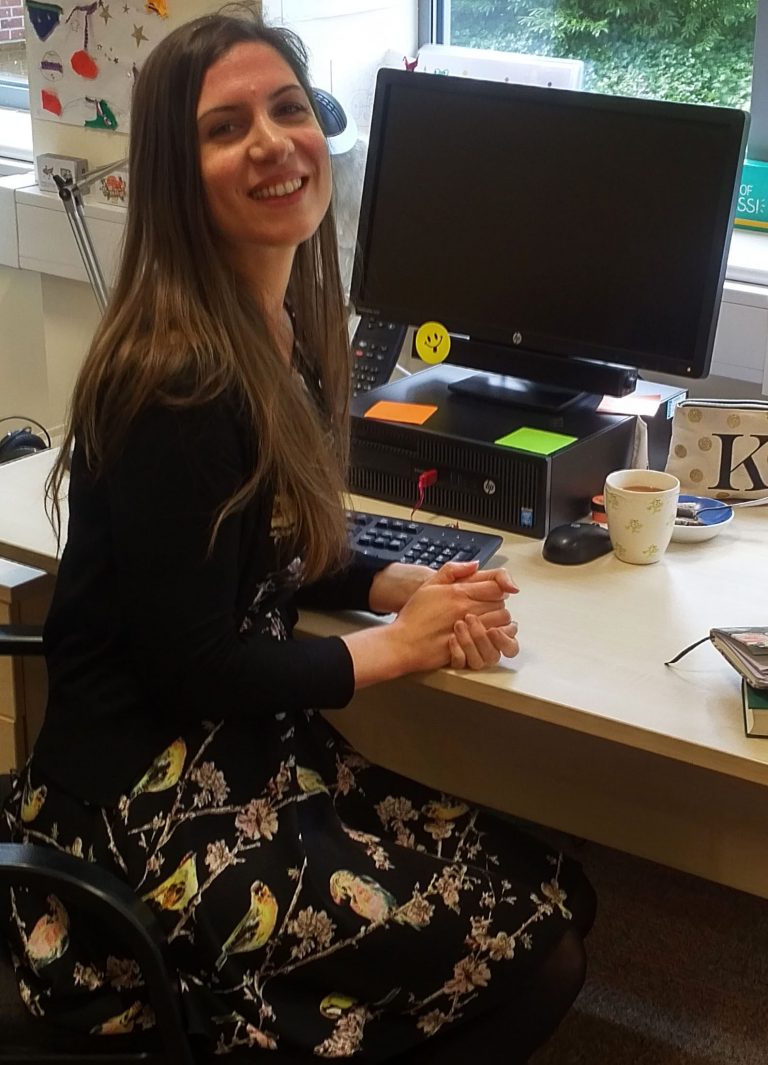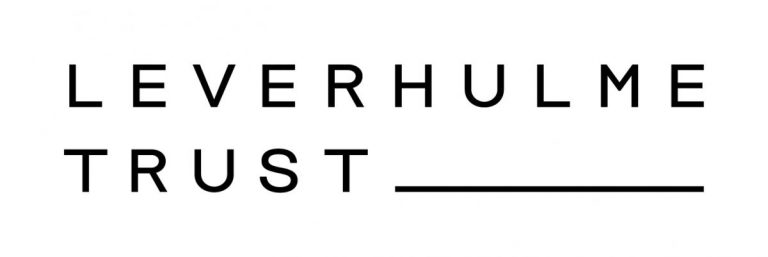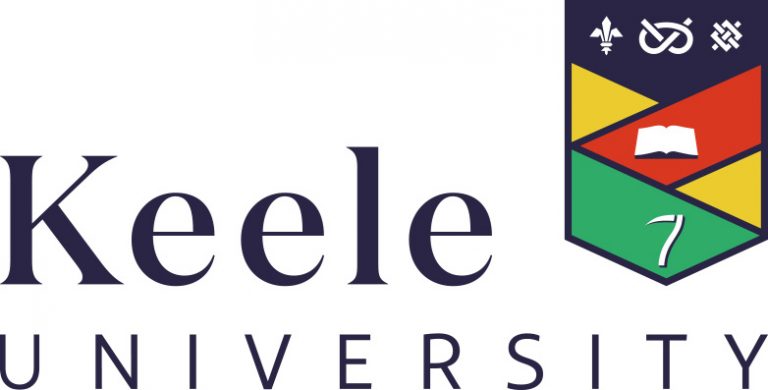
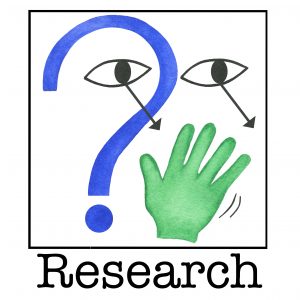

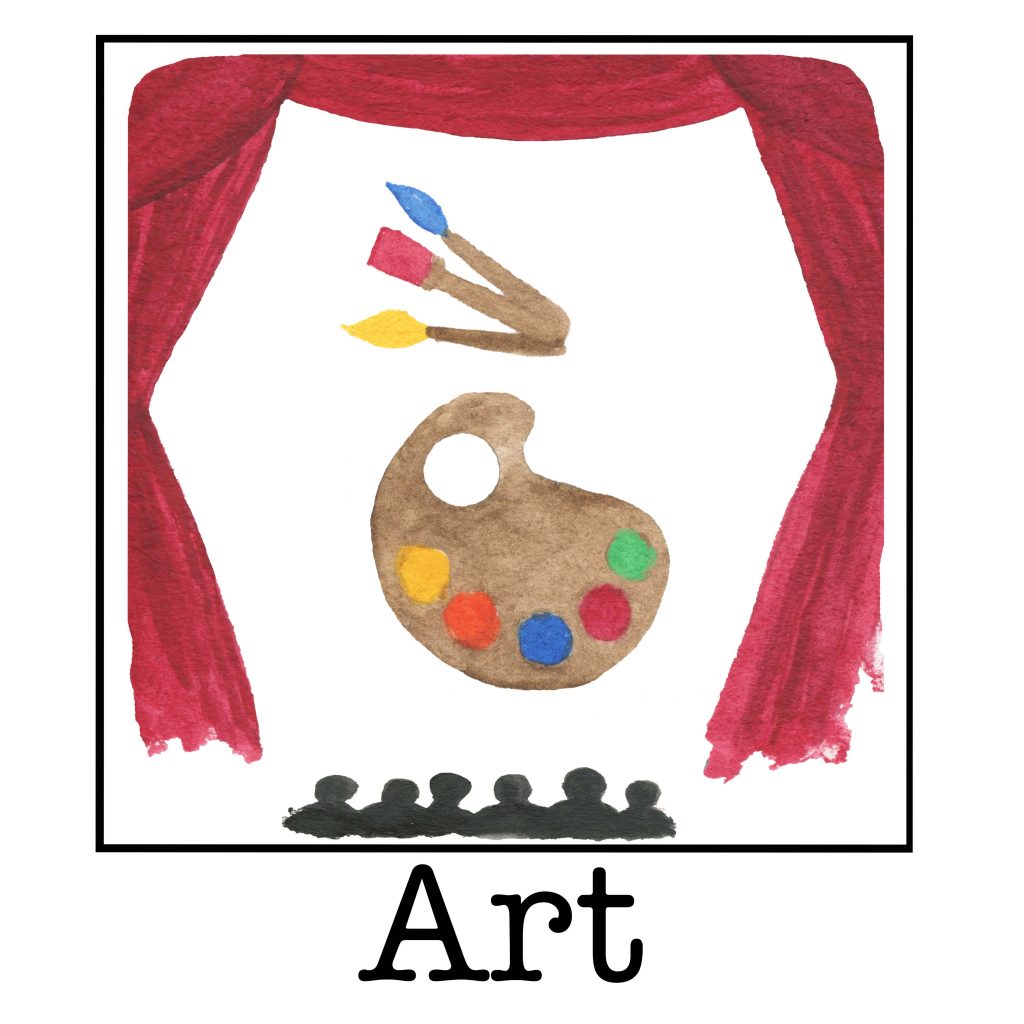
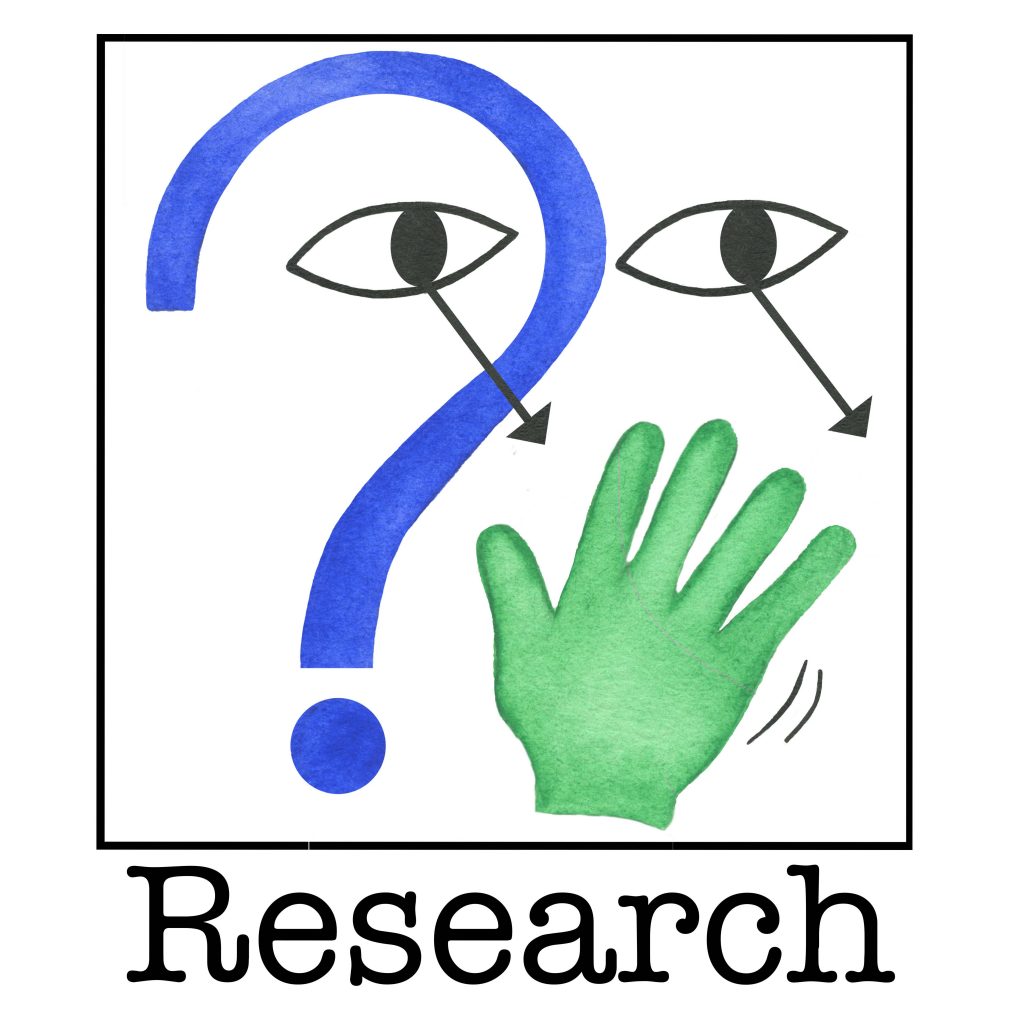

Welcome to A R T!
This website is about a research project that invites children and young people as well as their teaching staff and parents to use community art to do research together.
We have been asking questions such as: what is funny? And what inspires you? What do you like or love so much that it makes you want to dance, make art, music or tell your own story? To find answers we have made books, puppets, films, music and we tried to make each other laugh.
There were 162 young researchers from 4 schools! As well as lots of teaching staff, parents and carers who helped and joined in! This site is for everyone who would like to see what we have made and discovered.
There are two different stages of the project: Humour/Laughter and Inspiration. Please choose below or scroll down if you want more information about the project as a whole.
This website is about a research project that invites children and young people as well as their teaching staff and parents to use
community art to do research together.
We have been asking questions such as: what is funny? And what inspires you? What do you like or love so much that it makes you want to dance, make art, music or tell your own story? To find answers we have made books, puppets, films, music and we tried to make each other laugh.
There were 162 young researchers from 4 schools! As well as lots of teaching staff, parents and carers who helped and joined in! This site is for everyone who would like to see what we have made and discovered.
There are two different stages of the project: Humour/Laughter and Inspiration. Please choose below or scroll down if you want more information about the project as a whole.
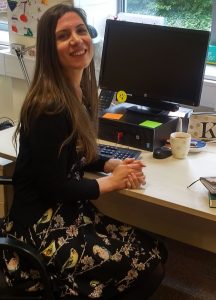 My name is Dr Karian Schuitema and I work at Keele University. I was very excited when I received support from the Leverhulme Foundation to develop and carry out research that explores how children attending special schools can be invited and supported to participate in ‘knowledge co-creation’. This means that instead of children and young people being the subject of my research, they have an active part in the project and we work together as collaborators.
My name is Dr Karian Schuitema and I work at Keele University. I was very excited when I received support from the Leverhulme Foundation to develop and carry out research that explores how children attending special schools can be invited and supported to participate in ‘knowledge co-creation’. This means that instead of children and young people being the subject of my research, they have an active part in the project and we work together as collaborators.
I have more than 14 years of experience supporting children and young people with diverse and specific needs in schools, colleges, play centres and nurseries. As I am dyslexic, and had a difficult time at school as a child, I have become very interested in different ways of expression, sharing knowledge and respecting neurodiversity. I am very passionate about ensuring that children have equal opportunities and have access to participate in the arts.
During this project I have particularly enjoyed working with the young collaborators, their parents and teaching staff and seeing what beautiful art they create when given space to explore and experiment.
Many people believe that children should have an opportunity to share their views and opinions. Children should be encouraged to explore the world around them, to ask questions and share their answers with others. This is because when children are able to share their experiences and have an ‘active voice’, people are encouraged to notice them, to listen to them and to ultimately help them to get access to what they need and want. However, not all children have the opportunity to express themselves with words. Children may need different ways of exploring the world around them and sharing their stories. This research uses the arts (including physical comedy, performance, storytelling, arts and crafts, music, puppetry and film) to understand how children can be given the best opportunities to express themselves and how adults can make sure children’s opinions and views are heard.
Children are increasingly offered opportunities to practice their right of having an ‘active voice’ (see The Convention on the Rights of the Child, Unicef). The arts can act as a medium for the child’s participation and practitioners are developing ways of including children’s voices within the stories and projects created about and for them. Research highlights the importance of inviting children as active co-creators of knowledge and illustrates that the arts can provide a platform for the child’s creative enquiry and embodied responses (see Bancroft et al, 2008). However, it is difficult to offer all children access to cultural activities that represent and engage with their experiences and enable meaningful participation. Some children are excluded because they have individual needs because of a learning disability. These children need alternative approaches so they can feel like equal participants and share their experiences even when these may challenge common assumptions about their lives. For example, the lives of children with learning disabilities are often approached according to stereotypes and, in research, children may be approached as lacking “free will or agency” (Simmons and Watson, 2014: 19).
This project invites children (including young people up to 18 years) but also their parents, teaching staff and other relevant stakeholders (such as therapists and policy makers) to explore these assumptions and find ways in which all children are able to express themselves. Sharing the stories of children with learning disabilities will give carers, educators and artists ways to understand children and hopefully encourage the development of creative learning opportunities that allow the child’s voice and personality to be heard and respected. Ultimately, the aim is to lay the foundation of a wider network that supports and connects academics with artists, policy makers and the wider community to create inclusive opportunities for all children. The practical aspects of the research spanned two overlapping stages:
The first stage explored how comedy can prioritise non-verbal communication. Collaborators were encouraged to consider comedy performance as a serious research method and to respond to the question “what is funny?” A series of performative workshops directly based on the children’s interests and abilities invited young collaborators, teaching staff and parents to experiment with comedy and physical humour. By prioritising laughter as a means of expression over verbal communication, the research stage explored spaces for knowledge co-creation in which adult and child engaged with the arts together, shifting the power away from the adult as much as possible.
The second stage used creative storytelling to unearth stories of ‘childhoodness’ from a range of different perspectives (with emphasis also placed upon local/global perspectives and interactions). Children and teaching staff took part in a series of workshops, which encouraged the children to share their diverse experiences through stories, puppetry, music and stop-motion animation. The theme of this research stage was inspiration and children were asked what they like so much that it makes them want to participate in the arts. Young participants helped to develop a film representing the work created by the whole school. The films will be shared with parents and other stakeholders who will be asked to respond to the work that has been created. During both research stages children were asked to share their experiences of taking part and a series of interviews invited the adult participants to reflect on creative research and developing accessible art for all children.
This project is supported by the Leverhulme Trust and Keele University:
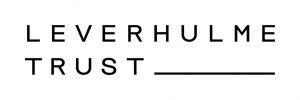
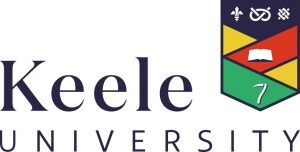
My name is Dr Karian Schuitema and I love doing research. I was very excited when I received support from the Leverhulme Foundation to develop and carry out research that explores how children attending special schools can be invited and supported to participate in ‘knowledge co-creation’. This means that instead of children and young people being the subject of my research, they have an active part in the project and we work together as collaborators.
I have more than 14 years of experience supporting children and young people with diverse and specific needs in schools, colleges play centres and nurseries. As I am disabled, and had a difficult time at school, I have become very interested in different ways of expression, sharing knowledge and respecting neurodiversity. I am very passionate about esuring children have equal opportunities and access to participate in the arts.
During this project I have particularly enjoyed working with the young collaborators, their parents and teaching staff and seeing what beautiful art they create when given space to explore and experiment.
Knowledge Co-Creation with Children
Many people believe that children should have an opportunity to share their views and opinions. Children should be encouraged to explore the world around them, to ask questions and share their answers with others. This is because when children are able to share their experiences and have an ‘active voice’, people are encouraged to notice them, to listen to them and to ultimately help them to get access to what they need and want. However, not all children have the opportunity to express themselves with words. Children may need different ways of exploring the world around them and sharing their stories. This research uses the arts (including physical comedy, performance, storytelling, arts and crafts, music, puppetry and film) to understand how children can be given the best opportunities to express themselves and how adults can make sure children’s opinions and views are heard.
Children are increasingly offered opportunities to practice their right of having an ‘active voice’ (see The Convention on the Rights of the Child, Unicef). The arts can act as a medium for the child’s participation and practitioners are developing ways of including children’s voices within the stories and projects created about and for them. Research highlights the importance of inviting children as active co-creators of knowledge and illustrates that the arts can provide a platform for the child’s creative enquiry and embodied responses (see Bancroft et al, 2008). However, it is difficult to offer all children access to cultural activities that represent and engage with their experiences and enable meaningful participation. Some children are excluded because they have individual needs because of a learning disability. These children need alternative approaches so they can feel like equal participants and share their experiences even when these may challenge common assumptions about their lives. For example, the lives of children with learning disabilities are often approached according to stereotypes and, in research, children may be approached as lacking “free will or agency” (Simmons and Watson, 2014: 19).
This project invites children (including young people up to 18 years) but also their parents, teaching staff and other relevant stakeholders (such as therapists and policy makers) to explore these assumptions and find ways in which all children are able to express themselves. Sharing the stories of children with learning disabilities will give carers, educators and artists ways to understand children and hopefully encourage the development of creative learning opportunities that allow the child’s voice and personality to be heard and respected. Ultimately, the aim is to lay the foundation of a wider network that supports and connects academics with artists, policy makers and the wider community to create inclusive opportunities for all children. The practical aspects of the research spanned two overlapping stages:
The first stage explored how comedy can prioritise non-verbal communication. Collaborators were encouraged to consider comedy performance as a serious research method and to respond to the question “what is funny?” A series of performative workshops directly based on the children’s interests and abilities invited young collaborators, teaching staff and parents to experiment with comedy and physical humour. By prioritising laughter as a means of expression over verbal communication, the research stage explored spaces for knowledge co-creation in which adult and child engaged with the arts together, shifting the power away from the adult as much as possible.
The second stage used creative storytelling to unearth stories of ‘childhoodness’ from a range of different perspectives (with emphasis also placed upon local/global perspectives and interactions). Children and teaching staff took part in a series of workshops, which encouraged the children to share their diverse experiences through stories, puppetry, music and stop-motion animation. The theme of this research stage was inspiration and children were asked what they like so much that it makes them want to participate in the arts. Young participants helped to develop a film representing the work created by the whole school. The films will be shared with parents and other stakeholders who will be asked to respond to the work that has been created. During both research stages children were asked to share their experiences of taking part and a series of interviews invited the adult participants to reflect on creative research and developing accessible art for all children.
This project is supported by the Leverhulme Trust and Keele University
